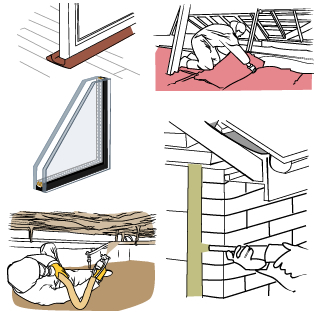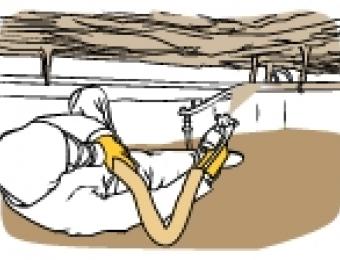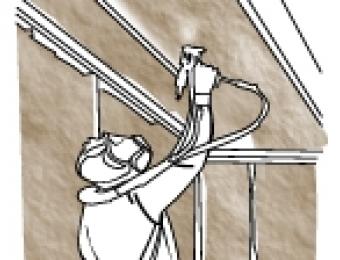
Adding insulation to your home is not only a great way to save energy and reduce your carbon footprint, but it will also save you money in the long term. It's important that your insulation is suitable to your climate, though.
If your house holds and absorbs heat from the sun as a result of your insulation and you live in an area where it's mostly hot all year round, the amount of energy you’ll use in cooling will be enormous, and will likely cost you more than if you had no insulation at all.
The relationship between insulation, heat transfer and ventilation
By itself, insulation is designed to slow or stop the flow of heat through a wall, floor or ceiling. Unfortunately, it will do this whether you want it to or not, and this is where having the right kind of ventilation becomes important.
Ventilation can release unwanted heat that gets trapped in your home - it's especially useful in ceiling cavities where heat often accumulates in warmer months. Ventilation also provides the air circulation necessary to prevent condensation from forming and damaging some types of insulation. Being able to control your ventilation adds to its net benefit, because it allows you to choose when you want to get rid of excess heat, and when you want to seal it in to keep your house warmer.
Rising electricity prices
There has been a lot of media attention given to the rising price of electricity. Over the course of time (and as electricity prices shoot through the roof), better insulation easily will repay its investment through energy savings.
A passively warmed or cooled home with the right insulation can go without air conditioning or heating for much of the year, so it's a very worthwhile investment.
How long does insulation last?
How long your insulation will last you varies across different types. Some types of insulation will wear out faster than others, particularly if they're exposed to moisture or physical impact. Generally speaking, any type of insulation should last for over ten years at a minimum before it starts to deteriorate, but most insulation types will last for the lifetime of your home. Some insulation types can be recycled too, but this is usually done at demolition sites when recovering building materials.





